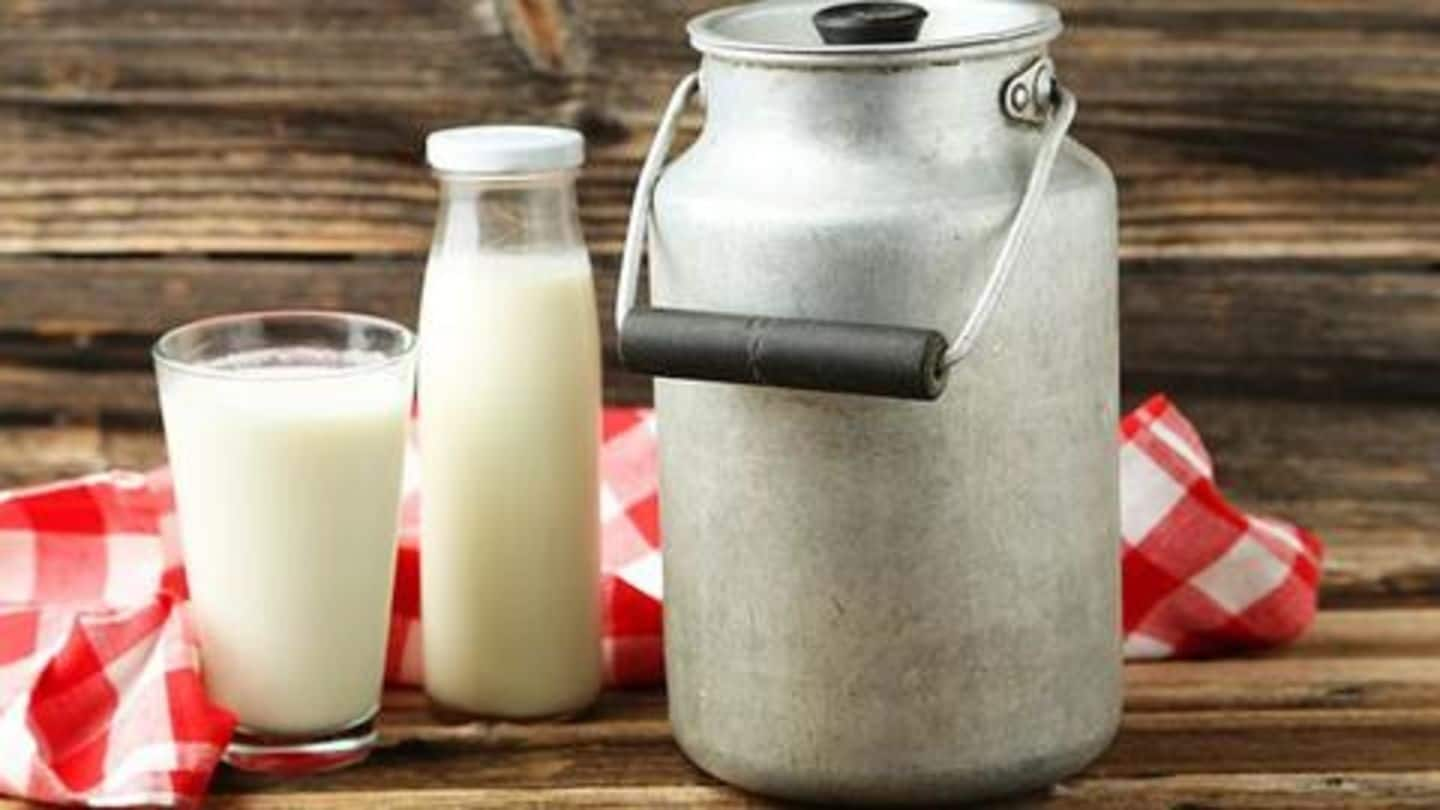
Milk and milk products topmost unsafe food item in Delhi
What's the story
If you are in Delhi, you might want to steer clear of dairy products, for now, that is if you wish to avoid a health risk.
A recent report suggests that milk and milk products sold in Delhi are more likely to be unsafe for consumption, according to the food safety department.
Here are more details about the report.
Details
Out of 2,880 samples, 477 failed quality testing
A report published in Hindustan Times revealed that out of the 2,880 samples, packaged and freshly prepared, that were quality-tested by Delhi's food safety department, 477 failed.
The quality tests were conducted between January 2018-April 2019.
The 477 failed samples comprised 144 substandard samples and 90 that were unsafe.
Most samples failed tests due to misbranding (nutritional information omitted or printed wrong).
Information
Milk products accounted for 161 of 477 failed tests
161 samples of the 477 failed tests were milk or milk products, the Hindustan Times report revealed. Out of those, 21 products were misbranded. 125 samples were found to be substandard, while 15 other products were marked unsafe for consumption.
Quote
Samples usually fail due to naturally low fat, solids content
"Usually, milk samples fail to meet standards because the fats or solids-not-fat content is less than standards mentioned in the act. Sometimes cows produce milk that is not up to standards," a Delhi health department official told HT.
In 2017, FSSAI reduced the standards for required fats and 'solids-not-fat' quantity to avoid failing samples with naturally low levels as it's not detrimental to health.
Quote
What's the difference between substandard and unsafe?
"A food is considered substandard when the nutritional level is not as per standards," a senior official from Delhi's health department stated. "Misbranded products and substandard products attract fines. But foods that are unsafe can damage health, and the manufacturers are fined and risk imprisonment."
Quote
Here's how you can guarantee you get safe milk
"To guarantee you get safe milk," founder of dairy sector consulting firm, Suruchi Consultants, Kuldeep Sharma suggested, "ensure that the package is intact, check the best before date, and see whether it was kept in a refrigerator in the store."
Sharma also stated that some adulterants, like sugar or glucose, are not harmful, while others, like soda or hydrogen peroxide, can make milk unsafe.
Other survey
FSSAI 2018 survey found 90% milk across India safe
Notably, a survey conducted by the Food Safety and Standards Authority of India (FSSAI) last year found milk across India to be "largely safe, even though quality issues persist."
According to the National Milk Quality Survey, 2018, tested 6,432 samples on a number of parameters and found that a little less than 10% of the samples (638) had contaminants making milk unsafe for consumption.
Information
2018 survey spanned 1,100 towns across 29 states, 7 UTs
The 'National Milk Quality Survey, 2018' was conducted in 1,100 towns across 29 states and 7 union territories and 1,100 towns over six months (May-October). However, the survey never specified which part of the country the adulterated samples came from.
Punishment
Punishments for violating food safety regulations
Anyone selling unsafe foods, which haven't caused harm, could face imprisonment for six months with a Rs. 1 lakh fine.
Causing injury extends prison term to six years with a fine of Rs. 5 lakh.
In case of death, the punishment could extend to imprisonment not less than seven years (may extend to life imprisonment) with at least Rs. 10 lakh as fine.